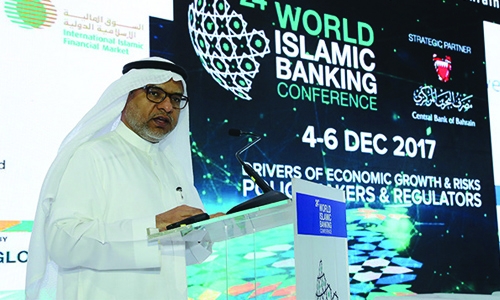The Islamic finance industry must “make the most” out of smart contracts, according to experts at the 24th World Islamic Banking Conference (WIBC).

Smart contracts are comprised of computerised transaction protocols which help to enforce a contract, and the technology has been gaining traction in recent years. According to the experts, smart contracts promise to be an economic and efficient tool in facilitating agreements going forward.
“The advent of fintech and blockchain is changing the industry that we know today,” said Khalid Hamad, Chairman of the International Islamic Financial Market and Executive Director of Banking Supervision at Central Bank of Bahrain. “Smart contracts need to be developed to the point where they are admissible in court and can be used in dispute resolution.”
“The Islamic Finance industry has historically played catch up with initiatives in mainstream finance. But there’s an opportunity here to develop the needs of the Islamic finance industry in the adoption of smart contracts from the beginning,” added Habib Motani, partner at Clifford Chance.
In his opening address at the conference, Hamad also stressed the growing need for standardisation across the industry.
“The rigor of this process ensures the quality of the output when the standard is finalised,” he said. “We expect Islamic banks’ leaders, as well as regulators, to encourage the adoption of these standards in their respective jurisdictions in order to lower their cost of operations and improve efficiency.”
The three-day event being held under the patronage of the Prime Minister HRH Prince Khalifa bin Salman Al Khalifa saw an audience of 400 delegates yesterday. The opening address by was followed by an overview of the IIFM standards and its contribution in the development of the Islamic finance industry.





